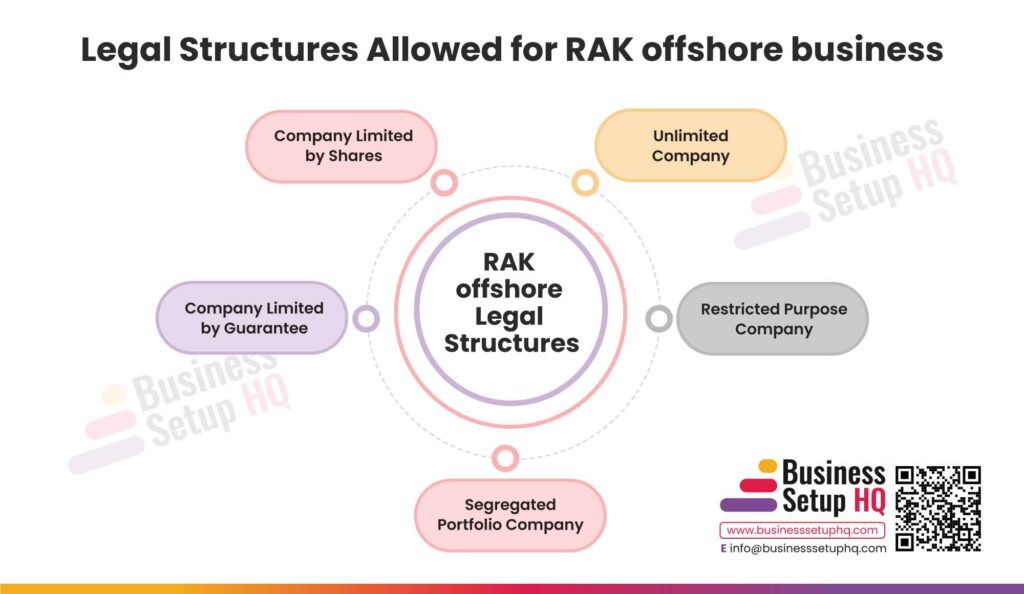Offshore Company Formation Plans with Full Legal Support
Wiki Article
Browsing the World of International Organization: Insights on Offshore Company Formation
Offshore Company Formation offers a tactical avenue for international service procedures. It provides noteworthy advantages, such as tax obligation optimization and improved personal privacy. Nevertheless, the procedure is not without its challenges. Recognizing the complexities of governing needs and various territories is essential. As services take into consideration these options, the actions entailed can considerably affect their lasting success. What are the essential aspects that can bring about effective overseas management?Recognizing Offshore Business: Interpretation and Objective
Offshore companies have come to be a focal factor in international organization conversations as a result of their unique lawful and economic structures. These entities are established in territories outside of the proprietor's nation of residence, typically with positive regulative environments. Usually, overseas companies serve numerous functions, such as possession security, tax obligation optimization, and improved privacy. They can operate in multiple fields including finance, technology, and profession, giving adaptability for global operations.The defining characteristic of an overseas Company is its ability to carry out organization globally while taking advantage of minimized tax obligation responsibilities and governing burdens. This framework interest entrepreneurs and capitalists seeking to expand their portfolios and manage risks efficiently. Additionally, many offshore territories offer motivations to attract international investment, bring about a boost in the Formation of these business. Recognizing the definition and purpose of offshore companies is crucial for navigating with the intricacies of global commerce and funding circulation.Key Advantages of Offshore Company Formation
The Formation of an offshore Company uses numerous engaging advantages that bring in financiers and entrepreneurs alike. Among the key advantages is tax optimization; lots of jurisdictions give desirable tax prices or exceptions, permitting businesses to make the most of revenues. Furthermore, offshore business typically enjoy greater privacy, as lots of jurisdictions have rigorous personal privacy laws securing the identities of Company proprietors and shareholders.Another substantial advantage is property protection. Offshore entities can secure assets from political instability and economic declines in the proprietor's home country. These companies can assist in international trade, offering easy accessibility to global markets and streamlining cross-border transactions.The adaptability in company structure likewise appeals to business owners, as overseas business can be tailored to satisfy certain functional requirements. Generally, the critical Formation of an offshore Company can lead to boosted economic safety, operational performance, and a robust international visibility.
Common Challenges in Developing Offshore Entities
Establishing overseas entities presents numerous challenges that companies have to navigate. Secret problems include regulative compliance, which can vary significantly across territories, and the effect of cultural differences on procedures. Additionally, companies should think about the threats and expenses associated with maintaining an offshore existence, which can affect general practicality.Regulatory Conformity Issues
Navigating governing compliance concerns presents significant difficulties for organizations when they seek to establish overseas entities. Each territory has its own collection of laws and guidelines, which can vary commonly and may be tough to browse. Companies often deal with challenges associated to tax obligation conformity, anti-money laundering guidelines, and reporting demands. In addition, adjustments in international tax laws can produce unpredictability, making it crucial for services to remain updated on conformity responsibilities. Failing to follow these guidelines can result in serious penalties, including fines and reputational damages. Involving and comprehending the legal framework with local specialists is essential for successful overseas procedures, making certain that services can run within the boundaries of the legislation while enhancing their worldwide strategy.Cultural Distinctions Impact

Price Considerations and Risks
Guiding via the economic landscape of overseas entity Formation presents numerous cost factors to consider and integral dangers. Preliminary setup prices usually consist of legal costs, enrollment costs, and compliance costs, which can build up significantly. Furthermore, continuous maintenance expenses such as annual charges and audit solutions should be factored in. Additionally, changing regulative settings in different jurisdictions position risks, possibly causing legal complications or unforeseen prices. Companies may likewise come across difficulties associated with taxation, financial, and reputational worries, which can impact profitability and functional efficiency. Consequently, potential business owners should conduct thorough due diligence and monetary forecasting to minimize these risks and guarantee sustainable growth. Comprehending these expense factors to consider is vital for effective overseas company ventures.Actions to Set Up an Offshore Company
Establishing an overseas Company entails numerous crucial steps that require cautious factor to consider. Secret aspects consist of making sure and picking the ideal territory conformity with regional guidelines, alongside collecting needed paperwork. Comprehending these elements is necessary for a successful offshore organization arrangement.Choosing the Right Territory
Picking the ideal territory is essential for any individual aiming to establish an overseas Company, as it can substantially affect business's lawful responsibilities, tax obligation obligations, and operational simplicity. Various variables should be taken into consideration, consisting of the political stability, governing atmosphere, and tax rewards provided by possible jurisdictions. Popular selections often consist of nations with desirable tax regimens, such as the British Virgin Islands or Cayman Islands, because of their reduced have a peek at this site or zero tax prices. Furthermore, the simplicity of doing company and the online reputation of the jurisdiction can influence financier confidence and market accessibility. Ultimately, a knowledgeable decision based upon complete study will certainly ensure the overseas Company is positioned for long-lasting success and conformity with global requirements.Required Documents and Conformity
When establishing an offshore Company, recognizing the needed documents and compliance needs is necessary to guarantee a smooth procedure. Key records normally consist of a certificate of consolidation, a memorandum and write-ups of association, and evidence of identification for supervisors and shareholders. Some territories might need extra info, such as business strategies or bank references. Compliance with local legislations is crucial, which typically entails selecting a registered agent and preserving a registered office. Regular coverage and adherence to tax obligation responsibilities have to additionally be considered. Failing to adhere to these demands can lead to fines or perhaps dissolution of the Company. Detailed preparation and assessment with lawful professionals can aid navigate these intricacies effectively.Choosing the Right Jurisdiction for Your Offshore Company
Exactly how can one identify one of the most appropriate jurisdiction for an overseas Company? Selecting the ideal jurisdiction needs careful factor to consider of several aspects. First, the legal and tax obligation atmosphere plays an important role; jurisdictions with favorable tax regimes might enhance organization earnings. Furthermore, the political stability and financial environment of a place can impact long-term service viability.Another vital facet is the accessibility of financial solutions and banking infrastructure, which facilitate smooth procedures. Prospective company owner must additionally consider the ease of doing organization, consisting of the speed of registration and the clearness of regulations.Furthermore, language barriers and cultural differences can impact procedures; for that reason, lining up with a territory that lines up with business goals and individual convenience is essential. Eventually, complete research study and professional suggestions can guide business owners in making an educated decision that lines up with their tactical goals.Conformity and Regulatory Considerations

Ideal Practices for Managing an Offshore Service
Handling an offshore organization calls for tactical planning and meticulous implementation to maximize performance and mitigate risks. Developing a durable conformity framework is important to navigate varying guidelines across jurisdictions. Normal audits and danger assessments assist recognize potential vulnerabilities.Moreover, leveraging neighborhood know-how through partnerships with local professionals can improve operational performance and social understanding. Making use of modern technology, such as cloud-based administration systems, enhances interaction and information administration, allowing better decision-making. Furthermore, preserving transparent monetary documents and making sure timely tax filings are important to copyright the Company's honesty. Buying team training and growth promotes an experienced workforce, advertising development and adaptability.Finally, developing clear efficiency metrics and essential performance indicators (KPIs) assists analyze company progress and educate critical adjustments. By adhering to these ideal methods, business can efficiently handle their offshore procedures, ensuring lasting success and sustainability in an affordable worldwide marketplace.Regularly Asked Questions
What Is the Cost of Creating an Offshore Company?
The price of forming an overseas Company differs commonly relying on territory, lawful requirements, and services required. Generally, expenditures can range from a few hundred to a number of thousand dollars, consisting of registration, conformity, and annual fees.Just how Lengthy Does It Take to Develop an Offshore Entity?
The moment required to develop an offshore entity varies substantially, usually varying from a few days to a number of weeks (offshore company formation). Variables affecting this duration consist of best site jurisdiction, called for documentation, and the efficiency of the service provider involvedCan People Form Offshore Companies Without a Service Partner?
People can certainly develop offshore business without a company partner. Many jurisdictions allow single-member entities, equipping business owners to establish and handle their organizations separately, while still benefiting from prospective tax obligation benefits and lawful defenses.site
Are There Any Tax Obligation Benefits for Foreign Investors?

What Kind of Services Frequently Use Offshore Business?
Offshore business are regularly made use of by numerous sectors, consisting of ecommerce, modern technology, and finance. These entities frequently offer functions such as asset security, tax obligation optimization, and privacy, interesting both multinational firms and individual business owners. Offshore business have actually come to be a focal point in worldwide organization conversations due to their unique lawful and financial structures. They can run in several industries including financing, technology, and profession, giving adaptability for worldwide operations.The specifying feature of an offshore Company is its capacity to carry out service globally while profiting from decreased tax obligation liabilities and regulative burdens. In addition, overseas business usually appreciate greater confidentiality, as lots of jurisdictions have strict personal privacy legislations securing the identifications of Company proprietors and shareholders.Another considerable benefit is asset defense. These companies can assist in international trade, providing very easy access to global markets and simplifying cross-border transactions.The versatility in business structure additionally charms to service owners, as offshore companies can be customized to fulfill certain operational requirements. Choosing the right territory is important for anyone looking to establish up an overseas Company, as it can greatly influence the business's lawful obligations, tax responsibilities, and functional simplicity.Report this wiki page